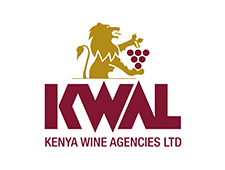QUICKMART: Quickmart Aims for Kenyan Industry Top Spot
Growing significantly in the past three years, Quickmart holds the vision of becoming the number one grocery retailer in Kenya. Recent successes include new stores opening with great feedback, and Deputy CEO Jacques Dome is optimistic about the company’s potential.
In Kenya, where 60% of goods are still purchased through small informal stores, growth opportunities are large for quality focused players. The country’s population of more than 53 million people is well educated and open to innovation.
Quickmart, a supermarket chain opened by Duncan Kinuthia in 2006, saw the potential. Modern, bright, open stores, all over the country, serviced by respected brands, and home to an exceptional customer service experience, delight customers with every visit.
Offering something different, but something very Kenyan, growth has been phenomenal for Quickmart, which now controls meaningful market share.
The company’s mission is to provide fresh produce in a way that is as easy as possible for customers. Today, a store network of more than 60 locations, staffed by 7000 people, are helping Quickmart to deliver on its promise after a merger with Tumaini Supermarket in 2020.
“We had exceptional growth in 2020, 2021, and 2022, opening 10 new stores per year. 30 stores in three years is quite an achievement for a supermarket company of our size,” says Deputy CEO, Jacques Dome.
“We got exposure in the Financial Times because of our success and we were labelled as the 11th fastest growing company in Africa, across all sectors.”
Dome, a retail industry veteran, joined Quickmart three years ago to help the company achieve its ambitions of becoming a national player. He has enjoyed a career across multiple geographies and various sectors, but always focused on retail with specific experience in GIB Group, Belgium; Kingfisher Group, UK; and Carrefour, Dubai and Athens.
“There is still so much potential in Kenya for further growth. We have 60 supermarkets and we believe we can get to more than 100. We are not considering going beyond Kenya at this stage because we believe there is so much growth here.”
HOMEGROWN
Several local players and a handful of international organisations are present in the Kenyan grocery retail market, but Quickmart has managed to create industry leadership status for itself by remaining by Kenyans for Kenyans. Stores have a complete range of products, complete with onsite bakeries, delis, butcheries, and more.
“Our difference is that we are a homegrown company that understands Kenya very well,” says Dome, the only expat in the entire company. “We have great expertise both in terms of knowledge of consumers and knowledge of development opportunity. Competitors that have failed in Kenya fail for two main reasons,” he assesses. “Firstly, they are foreign entrants and they have preconceived ideas about what a Kenyan consumer needs, but it is usually ranges and concepts that are not suitable here. Secondly, local competitors have failed with corporate governance. Retail seems a simple business but you have to control it very well. There are many opportunities to generate cash quickly or develop too quickly, or use cash for other reasons, and we have not been tempted by this.”
Quickmart is well organised, works within international quality standards, and works closely with suppliers to bring attractive offers and pricing to customers. At the same time, growth nodes in the country are identified and acted on by the senior team – not because they are typical high traffic high street locations, but because the local knowledge within the business understands market needs.
“A third of the openings we’ve had in the past three years were sites that we had the opportunity to take from competitors that had failed in the Kenyan market. Two thirds were a result of organic growth and came because we had tremendous support from our founders,” says Dome, adding that the founder of Quickmart, Duncan Kinuthia, develops real estate assets, including shopping centres branded ‘Basic’, that house Quickmart stores.
SUCCESSFUL OPENINGS
New branches around Nairobi, Mombasa, and Nakuru have bolstered the Quickmart portfolio and Dome is excited about the appetite from consumers as customer numbers continue to boom. This, he says, shows a desire from the company’s target consumer group for a better experience than they have had previously and an alignment from the company in how it services customers.
“We have had really successful openings and all have been generally performing beyond our expectations.
“We opened our most recent new store just six weeks ago in Narok. It is a city we felt was a little under subscribed. We have a pipeline of five or six more for the rest of this year. We are pursuing a few in Nairobi and in Nakuru where we are underrepresented today. We have one store there, a small supermarket, and so we would like a much larger store there.”
Dome is also keen on expansion further across the Rift Valley region, confident in the appeal of the company’s offering of ‘Fresh and Easy’.
“Our main competitor has more than 100 stores – a homegrown, local chain – and we both are searching for organic opportunities. There is also an international chain – more focussed on hypermarkets in shopping malls – with more than 20 stores. We believe we are well positioned for leadership in the future,” he says.
“Just over a year ago, we commissioned Boston Consulting Group to study market potential. They researched, city by city, the population, perspective, and wealth, as well as currently level of competition. That identified pockets of opportunity and potential very clearly, even factoring in the development of competitors. With that, we are confident that our operation can support 100 – 120 stores easily, even going further, to the northern part of the country.”
Currently, smaller competitors, operating one or two stores, dominate rural towns while larger companies are present in the metropolitan centres. Few can boast the quality location and instore excellence of Quickmart, which modernises its portfolio regularly.
“We have stores that are more than 15 years old and we have an ongoing programme around renovation. Every year we reassess our priorities and identify five or six stores that require modernisation,” says Dome, adding that local partners are utilised to ensure the look and feel of Quickmart stores remains on brand.
IMPORTANT SUPPLY CHAIN
In its bid to become the largest retailer in Kenya, Quickmart has developed partnerships and collaborations with the biggest and best brands in the country, while also offering up a range of international products to ensure customers receive the very best. The finest beverages come from Kenya Wine Agencies and the sweetest sugar comes from Transmara, while a whole host of other agreements are in place with more than 14,000 farmers, keeping Quickmart fully stocked.
But supply chain logistics is not traditional. Instead, Quickmart opts for a decentralised approach, using its larger stores as regional hubs. For Dome, this helps manage cost while providing efficiency in delivery.
“The supply chain is very important,” he emphasises. “We have made an original choice by not following the temptation and setting up a large central warehouse. Of course, there are positives with that strategy, but we wanted to be agile and not put too much investment into a single piece of infrastructure. We have been able to manage the supply chain which is mostly direct deliveries by suppliers to stores. We only handle logistics centrally with a few big, international suppliers because they are able to handle the cost.”
Suppliers deliver direct to store, and a Quickmart fleet of small trucks then completes circulation where required. “It’s a hybrid model but has been successful and cost effective,” says Dome.
This strategy again highlights the deep insight that Quickmart has of its market. Where other large international chains have entered Kenya without a robust market knowledge and failed, Quickmart has always demonstrated a connection with local people, understanding what is required in store, at what price point.
The emerging digital retail experience in Africa is an opportunity for growth for the company, and here the supply chain is again engaged in the best way to reach customers. It’s different to other big markets like Nigeria or South Africa, and those that come with a one-size fits all approach only get so far. For Quickmart, a fast jump into e-commerce did not make sense as it continued rollout of its bricks and mortar. Instead, Dome and CEO Peter Kang’iri are looking to innovate and develop an online system that Kenyans need and want rather than copying what is successful elsewhere.
“There is definitely a big opportunity that we have not seized yet,” he says, adding that deliveries and an online store must be carefully planned in line with the local supply chain.
“We started a partnership with Glovo – the international delivery firm – last year and we now have 24 stores operating through Glovo, serving customers digitally. We have a basic website but it is on the cards for us to invest in a step change there and look at a mobile app. We do take a lot of orders through WhatsApp or phone calls, and we do organise delivery to homes in this way. Currently, only less than 2% of our sales is online and we think the potential is there to reach 5%.”
CHANGING BEHAVIOUR
Dome is keen to progress the company’s digital capabilities as a behavioural change is already underway. Because of macroeconomic conditions present across East Africa, consumers are changing the way they shop. While perhaps a temporary adjustment, anything Quickmart can do to support its customers is helpful.
“Taxes and inflation have taken a toll on consumer buying power,” Dome admits. “We have seen the changing behaviour of consumers adjusting to that, coming more often, buying smaller baskets. Even so, the trends remain very good in terms of growth in number of customers.
“M-Pesa has now become the main payment method at close to 60% while cash only represents about a third of payments,” he says.
He adds that many customers comment on the convenience of the Quickmart offering, choosing the supermarket because of its welcoming environment, air-conditioned spaces, loaded with choices beyond the informal alternatives.
“When you enter any Quickmart store, you will see our branded red tuk-tuk where we display promotions. Then we have the fresh section where all the fruit and veg is displayed. It’s distinctive for Quickmart and we were the first to really push the fresh concept with this level of visibility.
“The atmosphere in the stores makes them feel modern,” he says. “We have strong branding, strong colours, and we have high-energy customer service. Our motto is ‘Fresh and Easy’. We certainly have fresh, and easy is all about our customer service. We have many staff on the ground they offer a very good service to customers. In a Quickmart store you certainly get help – people will pack and take groceries to the car. It’s a very easy in and out experience. Our strategy is not to be inside shopping malls for that reason. We want to offer free parking, and an easy experience.”
Dome is excited about the way forward for Quickmart. With strong momentum behind the company, and a growing economy, a fresh and easy retail experience, that brings the best of Kenya’s produce to customers, is a tried and tested recipe for success.
“It’s a wonderful country to live and work in,” smiles Dome. “People are friendly, open minded, and great to work with. Quickmart has been a great success story, and this has been a fantastic time for me for the past three years.”
Quickmart and Dome offer all customers the invitation to continue walking alongside the company as it continues to journey to even greater heights.




